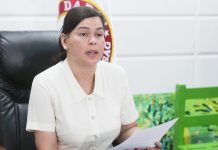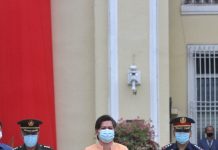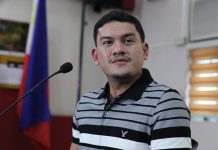THE controversial Camocaan health study which has been criticized by certain Filipino experts and branded “rigged” by the Pilipino Banana Growers and Exporters Association, is now being reviewed by the World Health Organization.
This was learned from the Department of Health which funded the so-called “Health and Environment Assessment of Sitio Camocaan, Hagonoy, Davao del Sur” done in 2006 but made public to a select audience only in May, this year.
The entry of the world health body was first revealed by Health Secretary Francisco T. Duque III during the Sept. 14 hearing of the House committee on appropriations on the 2010 budget of the DOH.
Three partylist congressmen – Leonardo Q. Montemayor of ABA-AKO, Jonathan A. dela Cruz of ABAKADA-GURO and Ariel Hernandez of AMIN – questioned Duque on the Camoocaan study.
Quoting Hagonoy Mayor Franco Calida’s testimony on alleged falsehoods peddled about Camocaan by researchers, like the death of two persons who turned out to be alive, Congressman dela Cruz cautioned the DOH against “spreading reports that are improper and not true.”
Dela Cruz said “we don’t want to come out with the report that will give injustice to the banana industry which is a million-dollar industry.”
When former Agriculture secretary Leonardo Q. Montemayor, ABA-AKO partylist congressman, inquired into the aerial spraying issue, Secretary Duque said that while there are existing toxicity manifestations like rashes, itchiness of the eyes, nausea and alleged respiratory problems, there are no chronic effects in people exposed to aerial spraying.
AMIN Rep. Hernandez said that while the issue of aerial spraying in banana plantations appeals to the emotion, “we should find ways to address the problem based on scientific findings and objective assessment.”
When Hernandez inquired as to the time frame for DOH to come up with its recommendation, Secretary Duque told the congressmen attending the hearing that he was still awaiting the WHO evaluation on the study.
Three days earlier, during the September 11 meeting of the Inter-Agency Committee on Environmental Health, the Camocaan team of researchers led by Dr. Allan Dionisio objected to the study’s being subjected to a review.
During the IACEH meeting presided by Duque and attended by the secretaries and representatives of labor and employment; trade and industry, environment and natural resources, fertilizer and pesticide authority (FPA) and the Center for Health Development for Davao Region, Dr. Dionisio argued there was no need for a peer review of the study as it had already been adopted by the DOH executive committee on August 24, 2009.
Against Dionisio’s objection, the committee decided to engage an international panel of experts to review the study, referring to the WHO.
Pending the outcome of the WHO review, the IACEH canceled its scheduled meeting on September 24 to discuss its resolution on the issue of aerial spraying.
In a memorandum dated September 22, Dr.Yolanda E. Oliveros, director of the National Center for Disease Prevention and Control, the secretariat of the high-level committee, informed members about the WHO’s review of the controversial study.
Dr. Oliveros said WHO’s Geneva headquarters had informed her about the request of its technical reviewers to be given more time to read pertinent documents submitted to them.
Meanwhile, PBGEA President Stephen Antig the banana association and Croplife, an association of agri-chemical companies, welcome the peer review to be conducted by WHO experts.
PBGEA and Croplife earlier requested University of Philippines-Manila Chancellor Ramon L. Arcadio for a review of the Camocaan study, claiming that its technical experts found it pockmarked with flaws and inadequacies.
0 Comments
Oldest






